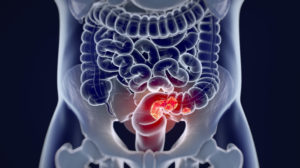Having the ability to empathize with your children, you would think, should come naturally. However, scientists have shed light on the connection between the oxytocin gene, the brain’s structure, and a mother’s empathy.
Having empathy for others is typical behavior for most people. There are two types of empathy: cognitive and affective. In essence, cognitive empathy is when you can put yourself in someone else’s shoes and understand their emotions. Affective empathy is when you understand and feel another person’s emotions.
Both have an influence on how a child develops psychologically due to parental behavior.
Read the original publication of this study here: Deep rooted: Mother’s empathy linked to ‘epigenetic’ changes to the oxytocin gene
This study aimed to determine whether methylation of the oxytocin gene (called OXT) can influence a mother’s empathy.

Mother’s empathy linked to ‘epigenetic’ changes to the oxytocin gene
In terms of biological empathy, high oxytocin levels, the so-called “love hormone,” usually means sensitive parenting. But scientists associate methylation of the oxytocin gene with brain structure in humans, which could explain the variation in parental behavior, specifically empathy.
Tomoda et al. measured saliva samples from 57 mothers with a mean age of 32 who were caring for at least one young child. Additionally, they also took MRI scans of the area of the brain that relate to OXT methylation. The idea was to make a link between DNA methylation and brain morphology. A questionnaire also established the levels of cognitive and affective empathy the mothers had at the time.
The scientists discovered that OXT methylation positively corresponded with a mother’s “personal distress” regarding hard parenting. OXT methylation was also negatively tied to the volume of gray matter in the right inferior temporal gyrus. This means that high methylation of OXT decreased brain volume in the inferior temporal gyrus while increasing personal distress.
Prof. Tomoda said, “This is the first study to find a correlation between DNA methylation of the oxytocin gene with empathy, and the first to link that methylation with both empathy and variation in brain structure. So, we’ve gained significant insight into the relationship between this gene and the phenotype — or the physical manifestation of gene expression.”
Statistical studies were unable to link brain structure and DNA methylation, meaning there was no relationship between empathy and epigenetic changes.
These results elucidate the intricate processes involved in maternal empathy, which could have a real benefaction in discerning psychological development in children.
As Prof. Tomoda explains, “Our study really helps to clarify the link between oxytocin gene methylation and parental empathy, as well as the effects on empathy-related parts of the brain. This understanding augments efforts to understand maltreated children better and contributes to their healthy development.”
Takeaways:
- Oxytocin gene (OXT) DNA methylation predicts maternal empathy (Personal Distress).
- OXT methylation is inversely correlated with the GMV of the right ITG.
- The indirect effect of ITG gray matter volumes was not significant.
1 Mother’s empathy linked to ‘epigenetic’ changes to the oxytocin gene





